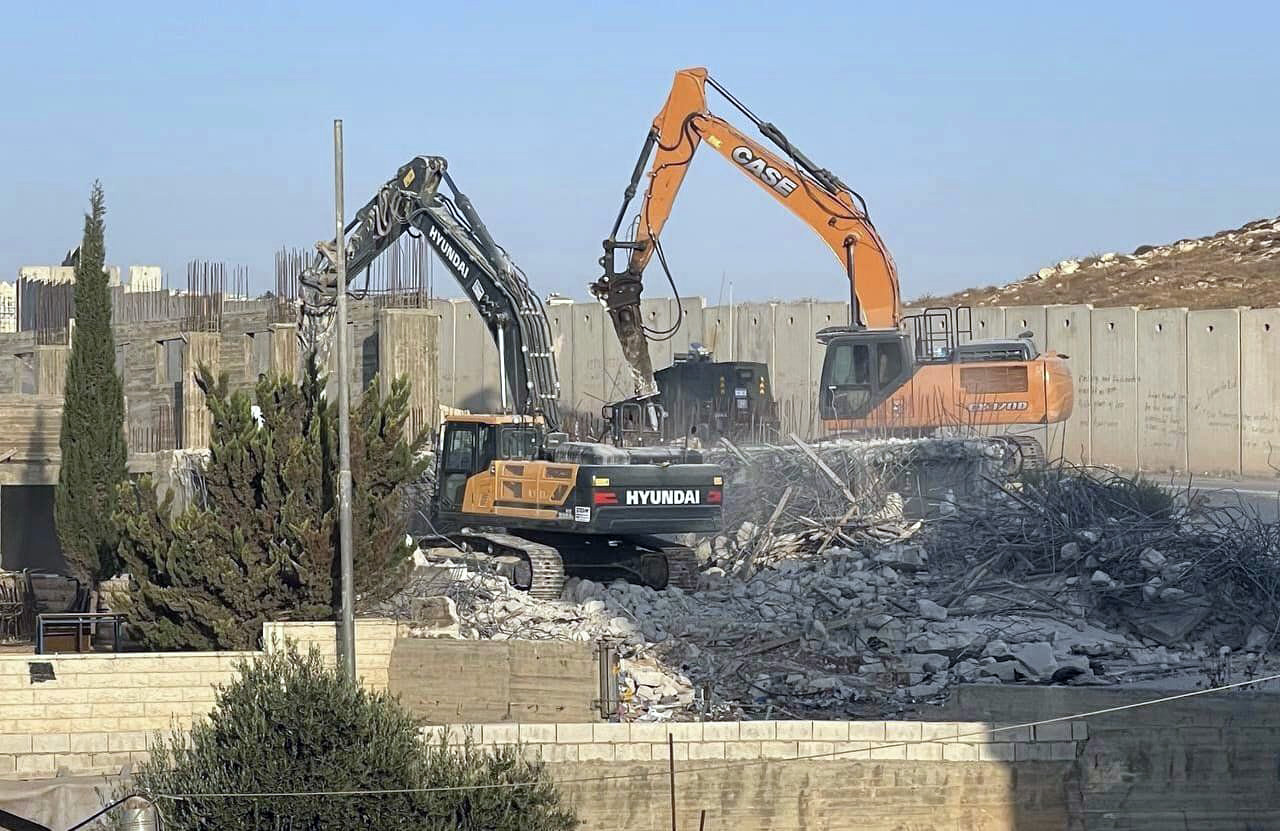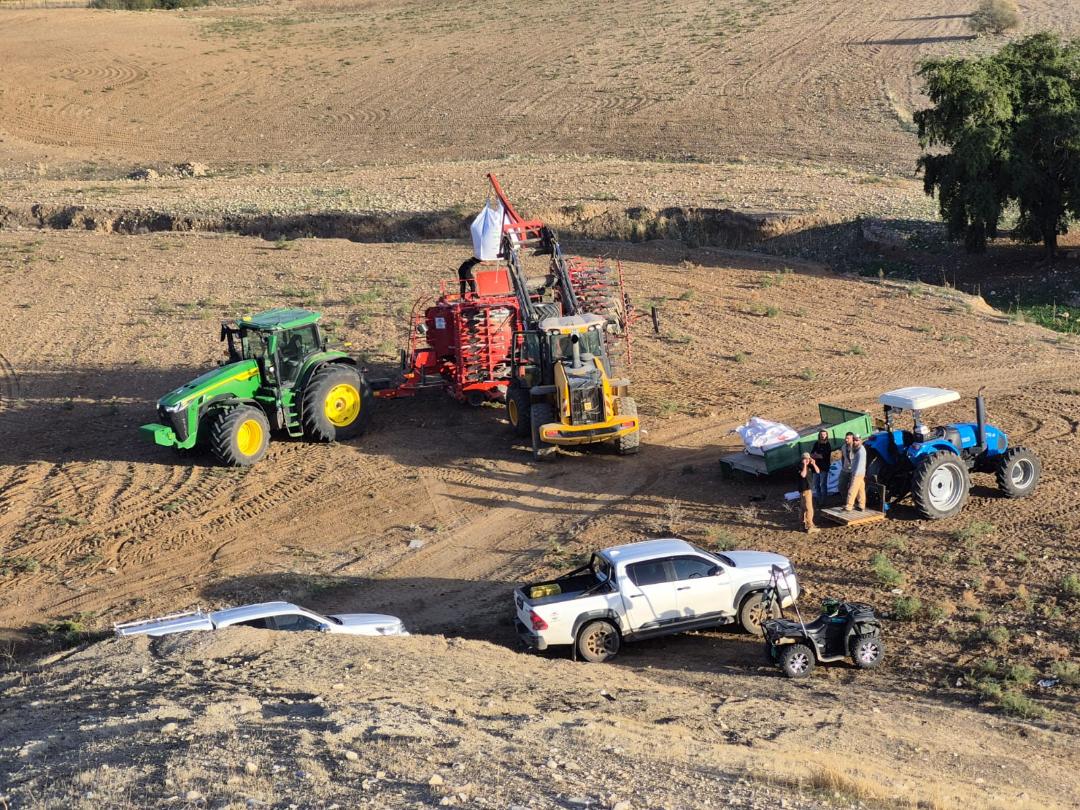RAMALLAH, Tuesday, May 28, 2019 (WAFA) – The Palestinian Private Sector Associations and Federations announced that their rejection to attend the US-brokered economic workshop scheduled to be held in the Bahraini capital, Manama, later in June.
The Palestinian Private Sector Associations and Federations said in a statement that last Sunday members of the Palestinian business community received invitations from U.S. Secretary of the Treasury Steven Mnuchin to attend the “Peace to Prosperity” workshop, slated for June 25 and 26 in Bahrain, with the stated aim of “unleashing the economic potential of the Palestinian private sector.”
Following is the official response as to why we are not attending and why as captains of business we support our political leadership in its principled stance against economic overtures without concrete political rights and process:
- Once again, the Trump Administration has decided to postpone the release of its political vision for Mideast peace and is leading instead with its economic plan, ostensibly offering a carrot before the stick.
- We harbor no bad will to any party willing to genuinely help economic development, but in the right context and not in lieu of our political rights. We feel compelled as such not to be a party to any engagement that is contrary to Palestinian national consensus.
- As private sector associations representing approximately 80% of the gross domestic product of Palestine, we know very well what is the measure of Palestine’s potential. We also know that the way to unleash that potential requires that Israel unshackle Palestinians from the systematic restrictions that have been part and parcel of the half-century old military occupation of Gaza and the West Bank including East Jerusalem.
- Economic peace—regardless of how it is repackaged—has been tried by successive US administrations and has failed every time precisely because freedom and sovereignty for Palestinians was lacking.
- In 1994, after the launch of the Oslo peace process, many Palestinian business leaders and investors returned to the homeland from the diaspora to join with the local Palestinian private sector in the occupied territories to build the future state of Palestine.
- Some of us were refugees from 1948 who had been forced out of our homes when the State of Israel was established. Against all odds and with grit and determination, as grandfathers and fathers we had built successful businesses and lives abroad. Inspired by love of country and our sense of responsibility to our sons and daughters and the youth of Palestine; we have together traversed the arduous journey of nation building.
- Between 2004 and 2014 alone, the Palestinian private sector mobilized $30 billion in development projects in the occupied territories, more than twice as much as the combined efforts of the international donor community.
- Today, 70% of the jobs in Palestine come from the private sector.
- We are determined to fight the unemployment rate ]which witnessed[ an astronomical increase of 30.8% as a direct result of the persistence of the Israeli occupation and the increasing restrictions on movement and access imposed on Palestinians.
- If we do not address the real reasons for economic stagnation, how can the US administration think investments can be attracted under the current regime of obstacles created under pretext of Israel‘s security? We pose the following questions to the US administration:
- How can a Palestinian entrepreneur get his goods to the international market when shipments are held up for days or months in Israeli warehouses?
- How is the Palestinian tech sector supposed to flourish when for years Israel denied Palestinians access to 3G and now prevents access to 4G technology?
- How can a business get its employees proper training when Israel prevents their travel abroad and denies visas for internationals to stay in Palestine?
- How can our farmers maintain their livelihoods when their land and water are confiscated and diverted to further Israeli settlements expansion?
- Despite these and many other challenges, we have not been deterred. We have worked hand-in-hand with international and Arab partners and with every U.S. administration since President Clinton’s to develop several visionary plans to spur economic growth and create jobs.
- Among these were “Beyond Aid,” a 2030 development strategy and “Global Palestine, Connected Gaza,” a 2050 spatial and economic vision for Gaza that would rebuild the enclave from years of de-development and conflict and create sustainability for up to 4.2 million Palestinians projected to live in Gaza in 2050.
- In addition, for almost three decades, many of us have worked in partnership with USAID, OPIC and the U.S.-sponsored Middle East Investment Initiative on other schemes to further economic growth with some success.
- However, the Palestinian economy will never grow to its full potential without a comprehensive political solution that justly resolves all final status issues in accordance with international law and UN resolutions.
- As private sector we stand behind the position of our political reference; the Palestine Liberation Organization, the sole legitimate representative of the Palestinian people.
- The type of economic development that Palestine requires is not possible amid political uncertainty. Any U.S. plan that does not include sovereignty for Palestinians will not only fail but will condemn Israelis and Palestinians to perpetual violence and conflict.
- The requirements for a durable solution have been well known: an independent, sovereign and viable state of Palestine based on the June 4, 1967 green line, and East Jerusalem is the capital of Palestine, a just solution for the plight of Palestinian refugees based on relevant U.N. resolutions, equitable allocation of shared water resources and release of our political prisoners.
- The U.S. political plan must be unveiled first so Palestinians can determine if these essential requirements to ending the conflict have been met. Otherwise, there can be neither peace nor prosperity.
- The Palestinian private sector is ready to do its part to engage any party for that matter in the right timing and context in furthering Palestinian economic development following the release of the administration’s peace plan and the agreement and engagement of the Palestinian leadership of this political plan.
- At that time, we would be happy to host international partners in Palestine for a an all-encompassing economic conference welcoming to our country all friends who are eager to support economic development in Palestine with a sincere desire to help us nation build our sovereign country and independent economy at peace with neighbors.
- We will not be a party to a U.S economic vision designed to keep Palestinians “leashed” to indefinite occupation and which denies us fundamental rights and human dignity.
- We thank the Arab countries and governments for their consistent support for our rights and aspirations.
- We reaffirm our support for the2002 Saudi Peace Initiative, which recognized that an end to the Israeli-Palestinian conflict and Palestinian statehood is a prerequisite to a comprehensive Mideast peace.
Signed,
Palestinian Federation of Business Associations
Palestinian Federation of Industries
Business Women Forum-Palestine
Palestine Trade Center - PALTRADE
Federation of Palestinian Chambers of Commerce, Industry and Agriculture
Palestinian American Chamber of Commerce
K.F.











